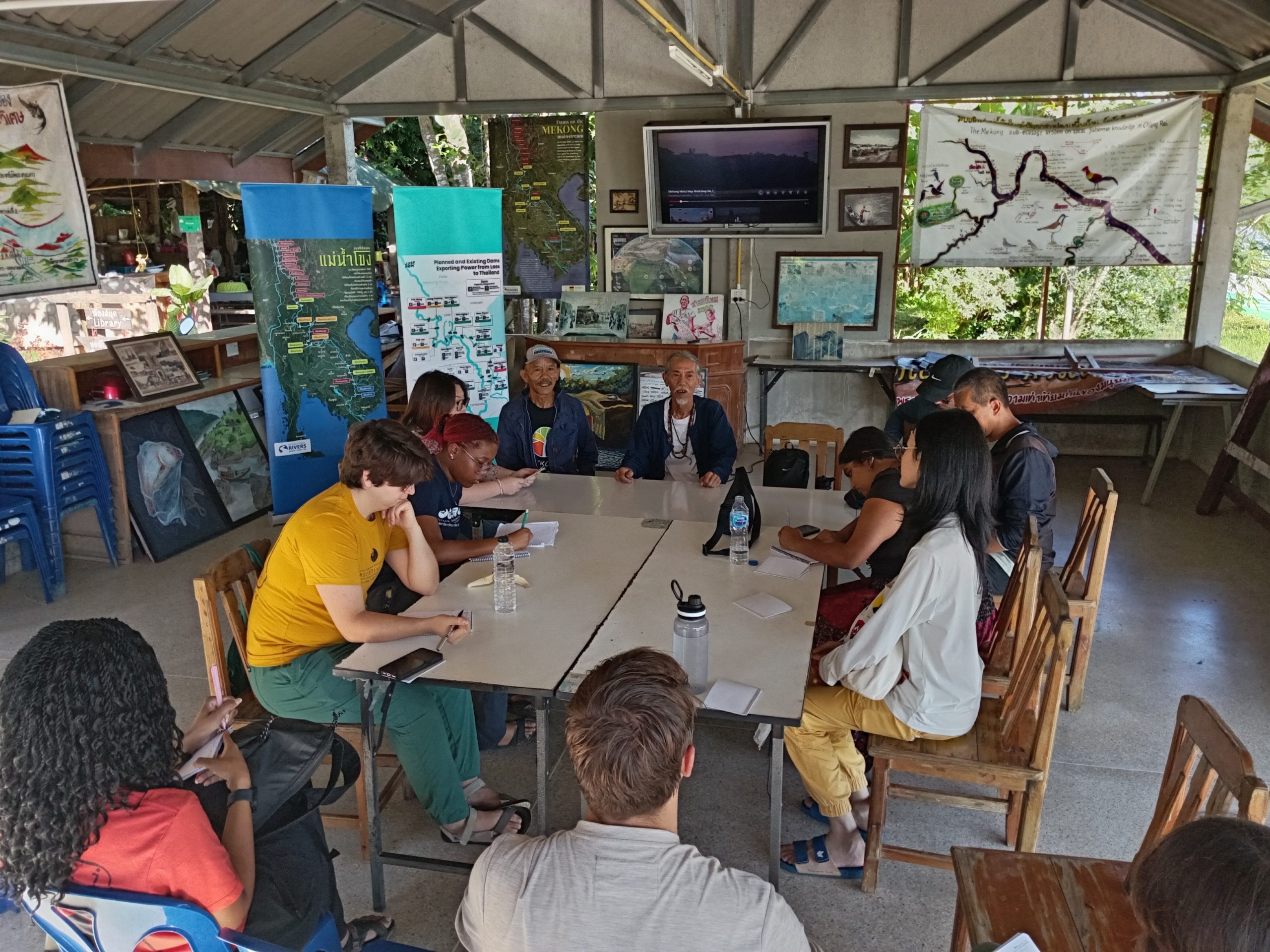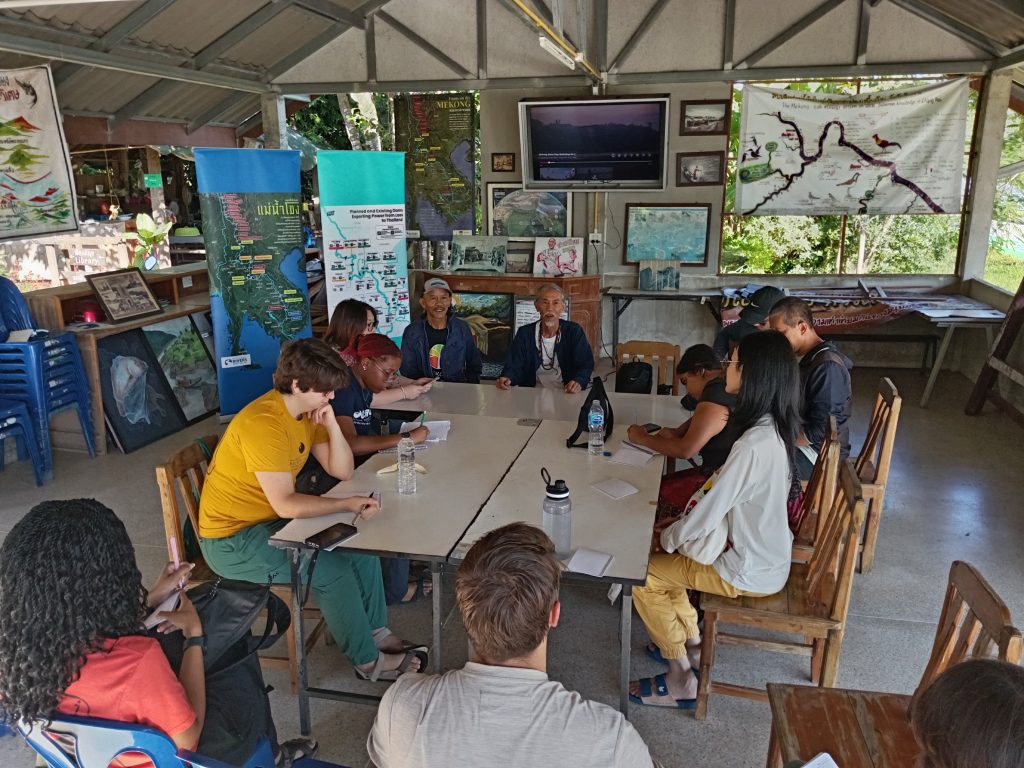
On Saturday, October 18, 2018, at 8:30 a.m., at the Mekong School: Institute of Local Knowledge,
The International Sustainable Development Studies Institute (ISDSI), under the Foundation of Experiential Learning (FEL) and in collaboration with Maejo University International College, organized an experiential learning program for 13 Minnesota Studies in International Development (MSID) undergraduate students from the University of Minnesota, along with lecturers and academics. The students visited the Mekong River at the Mekong School and the Mekong Riverside vegetable garden in Ban Hat Krai.
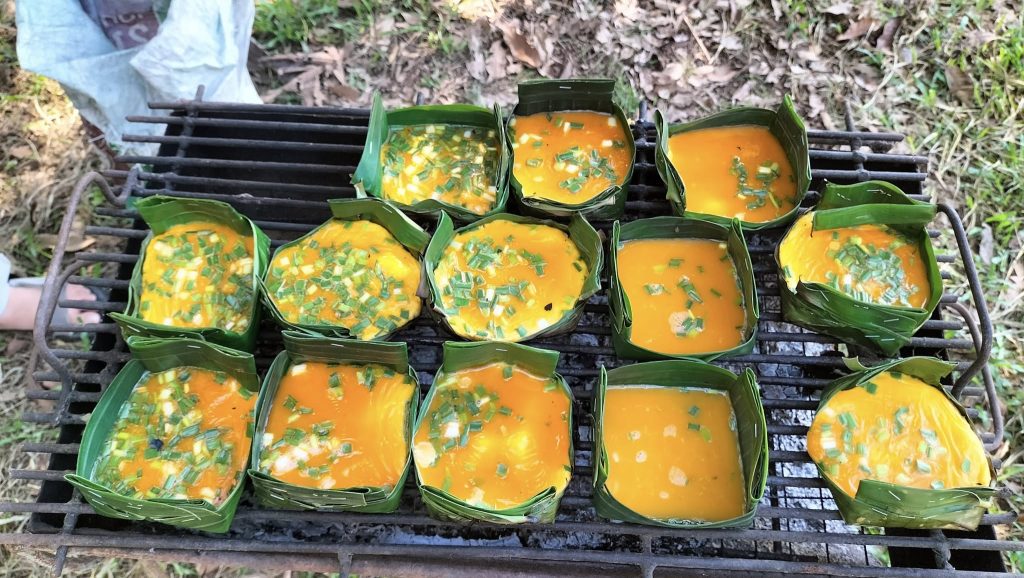
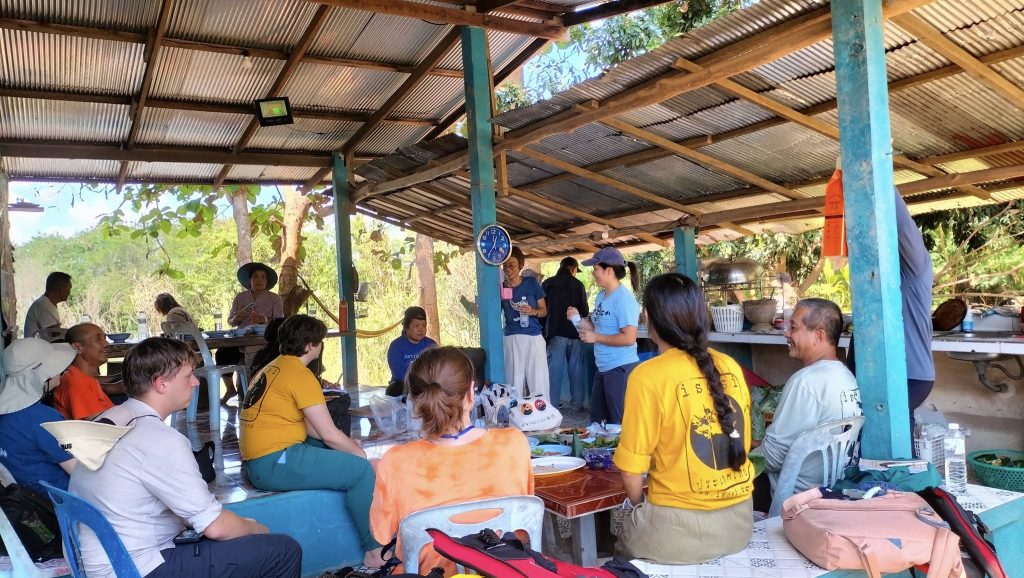
Teacher Tee- Niwat Roykaew, Director of the Mekong School: Institute of Local Knowledge, delivered a lecture emphasizing the cumulative impacts of hydroelectric dams over the past two decades. A major and serious problem today is mining, both gold and rare earth mines, in Shan State, Myanmar. The Kok, Sai, and Ruak rivers are contaminated with toxic chemicals, and these rivers flow into the Mekong River. This is not just an international problem, but a regional and global one.
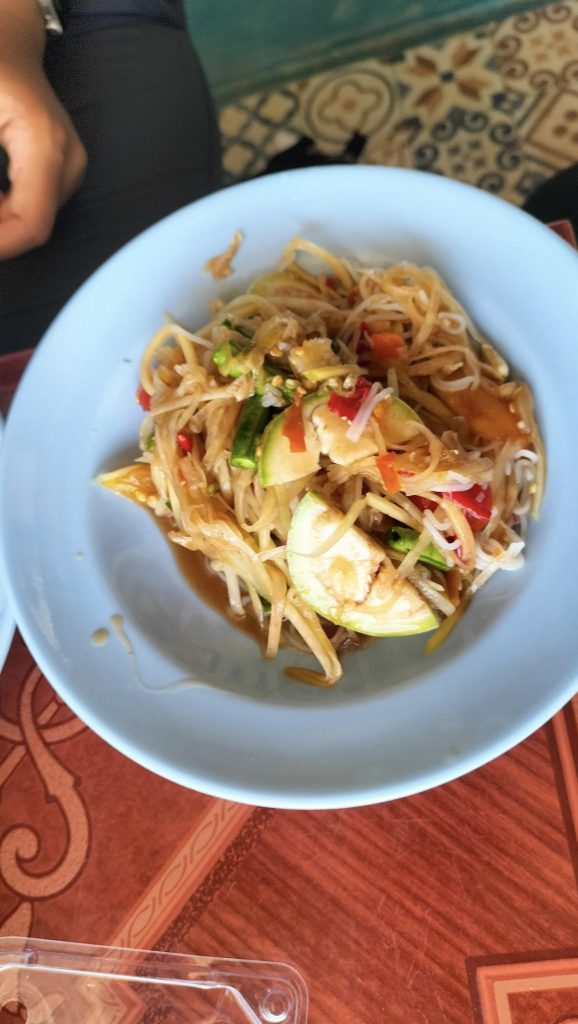
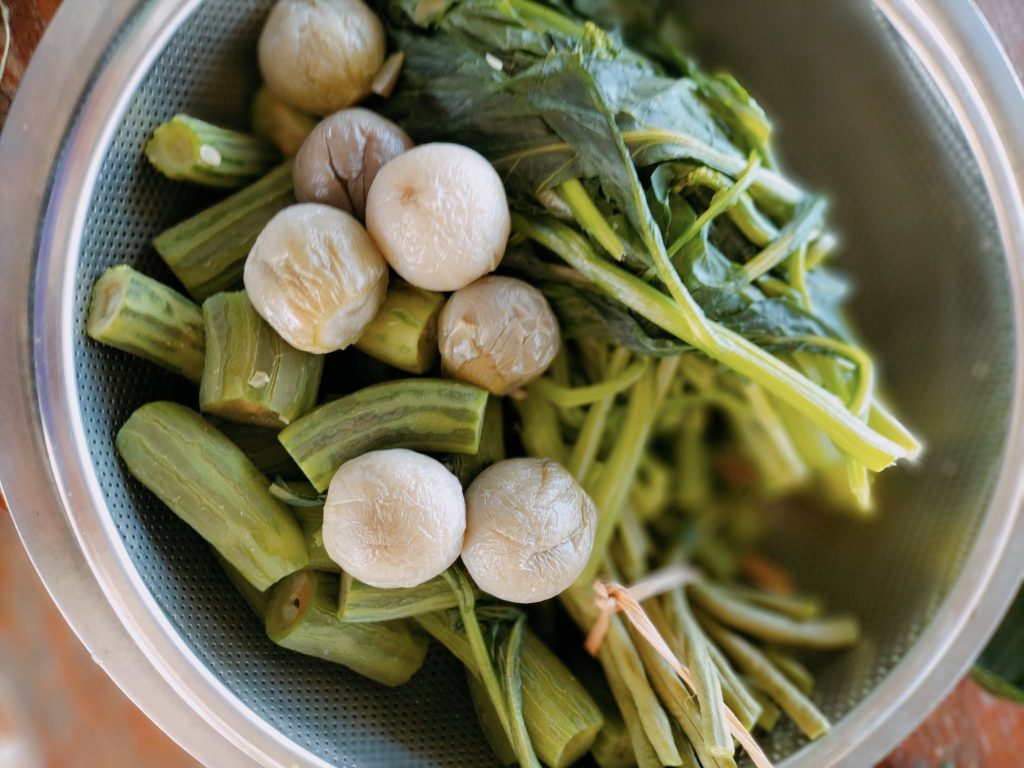
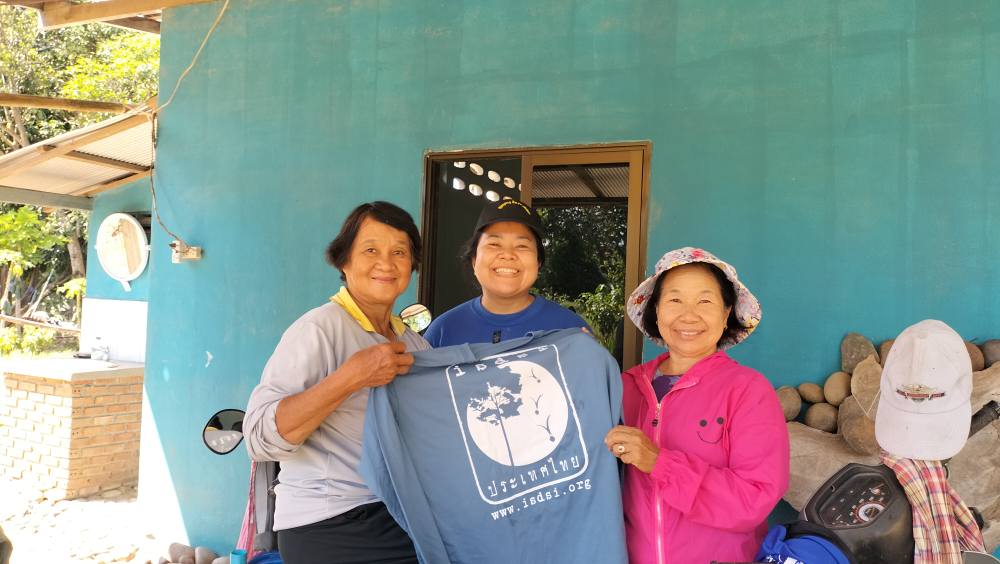
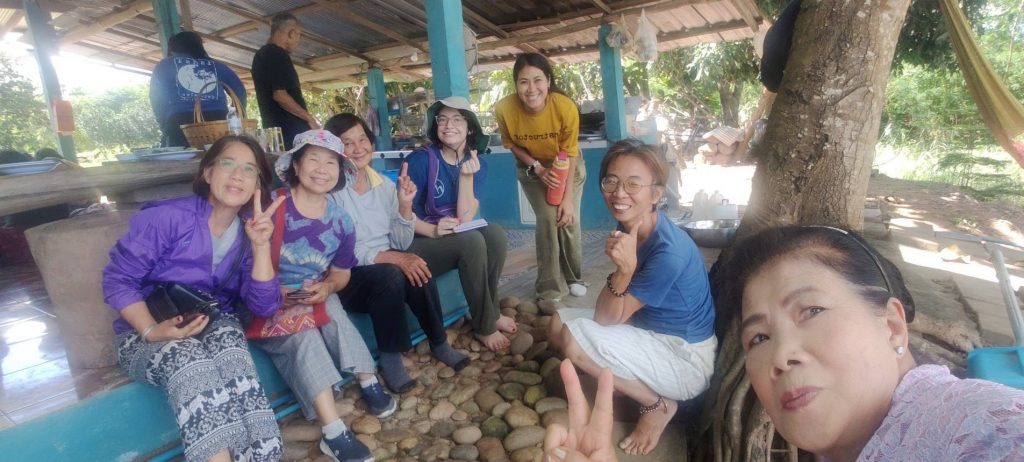
Chak Kinisi and Nopparat Lamun, volunteers at the Mekong School, led students on a boat at Tha Pha Than Pier to learn about the Mekong River ecosystem. They listened to stories about the past of catching the Mekong giant catfish, the world’s largest freshwater catfish, and harvesting Mekong riverweed. (Kai) They then disembarked at Ban Hat Krai to learn how to harvest vegetables and prepare traditional dishes, sharing them with others.
Busakorn Nilphet, a villager from Hat Krai, said that although she was not fluent in English, she learned from the interpreter that the students were delighted to be able to cook for themselves and would like to return.

